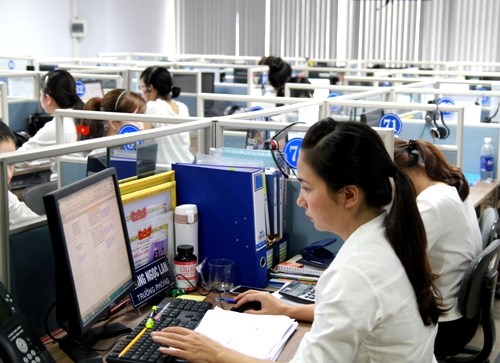In addition to direct costs to handle the crisis, repair systems and pay for lawyers, cyber-attacks could also result in reduced confidence among customers, affecting enterprises’ business activities, Dung added.
The Vietnam Institute of Directors (VIOD) and the Association of Chartered Certified Accountants (ACCA) held a seminar titled ‘Cyber resilience for the board of directors’ in Hanoi on August 16.
    |
 |
|
Photo for illustration: danang.gov.vn |
According to attendees at the seminar, cyber threats are intensifying in Asia. Hackers are 80 percent more likely to attack organisations in Asia, while nearly 80 percent of internet users in Asia have not received training on cyber security.
Total economic losses are estimated to reach 1.75 trillion USD, accounting for 7 percent of Asia Pacific’s gross domestic products (GDP).
Cyber-attacks might lead to data privacy breaches and losses in confidential information, reputation, customer trust, revenue and jobs, said Sharath Martin, regional policy consultant, ACCA ASEAN & ANZ (Australia –-New Zealand).
Damage caused by computer viruses caused economic losses of 12.3 trillion VND (540 million USD) in Vietnam last year, according to a survey by the security firm BKAV.
Digital usage is increasing in Vietnam, said Martin, as the country has the highest number of registered domains in Asia. The mobile penetration rate stands at 144 percent, of which, 50 percent are smartphones.
The country’s e-commerce growth was 35 percent annually.
Ha Thu Thanh, VIOD’s chairman of the board of directors, said that network security issues should become the top priority for most of business boards.
Boards of directors should prioritise cyber security risks as an issue in risk management, not just a technology problem, Thanh said.
“Therefore, boards of directors should play a key role in studying cyber security risks associated with their businesses to know that if the prevention and detection of the risks in the businesses were controlled by the businesses’ management systems or not,” Thanh emphasised.
Sharath Martin pointed out key insights for boards of directors.
Firstly, boards of directors and senior managers should bring cyber security issues into all boardroom topics. The boards should also develop a cyber security strategy, he said.
Secondly, the boards should address their cyber defensive frailties. Businesses should have executives responsible for information security.
Thirdly, he highlighted the speed of detection and recovery.
Lastly, he said that businesses needed to ensure that the investments in information security must keep pace with technology adoption.
Within the framework of the seminar, VIOD and ACCA also signed a Memorandum of Understanding to increase the two sides’ co-operation in raising awareness and promoting international corporate governance practices to become key factors for the sustainable development of Vietnamese enterprises.
Source: VNA